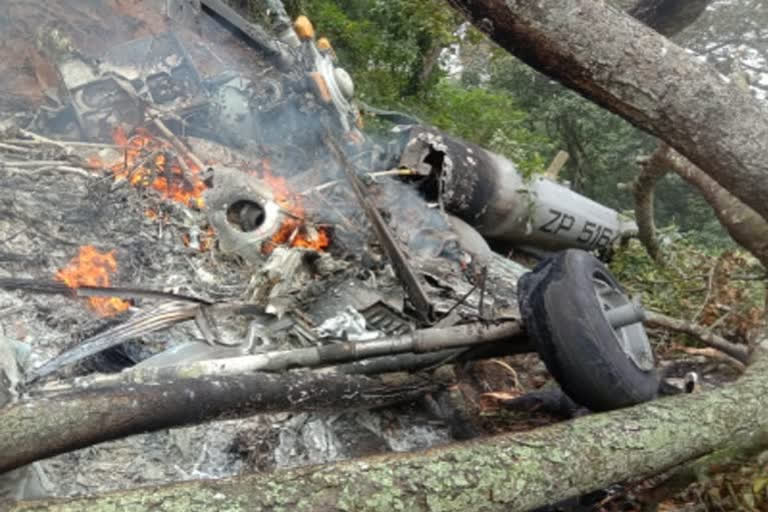New Delhi: The IAF chopper crash on December 8 that killed Chief of Defence Staff (CDS) Gen Bipin Rawat and 13 others was due to an unexpected change in weather that led to spatial disorientation of the pilot, stated the preliminary findings submitted by the tri-services court of inquiry.
"The tri-services court of inquiry into the Mi-17 V5 accident on December 8, 2021, has submitted its preliminary findings," the Indian Air Force's statement said on Friday.
The court of inquiry has ruled out mechanical failure, sabotage or negligence as a cause of the accident, it said.
Also Read: IAF chopper crash: Probe report likely to be submitted to Air HQ next week
"The accident was a result of entry into clouds due to unexpected change in weather conditions in the valley. This led to spatial disorientation of the pilot resulting in Controlled Flight into Terrain (CFIT)," it stated.
According to US aviation regulator FAA, CFIT is defined as an unintentional collision with terrain -- the ground, a mountain, a body of water, or an obstacle -- while an aircraft is under positive control.
Gen Rawat, his wife Madhulika, his defence advisor Brigadier LS Lidder, staff officer to the Chief of Defence Staff, Lt Col Harjinder Singh and decorated pilot Group Captain Varun Singh were among 13 others killed in the crash near Coonoor in Tamil Nadu.
PTI



